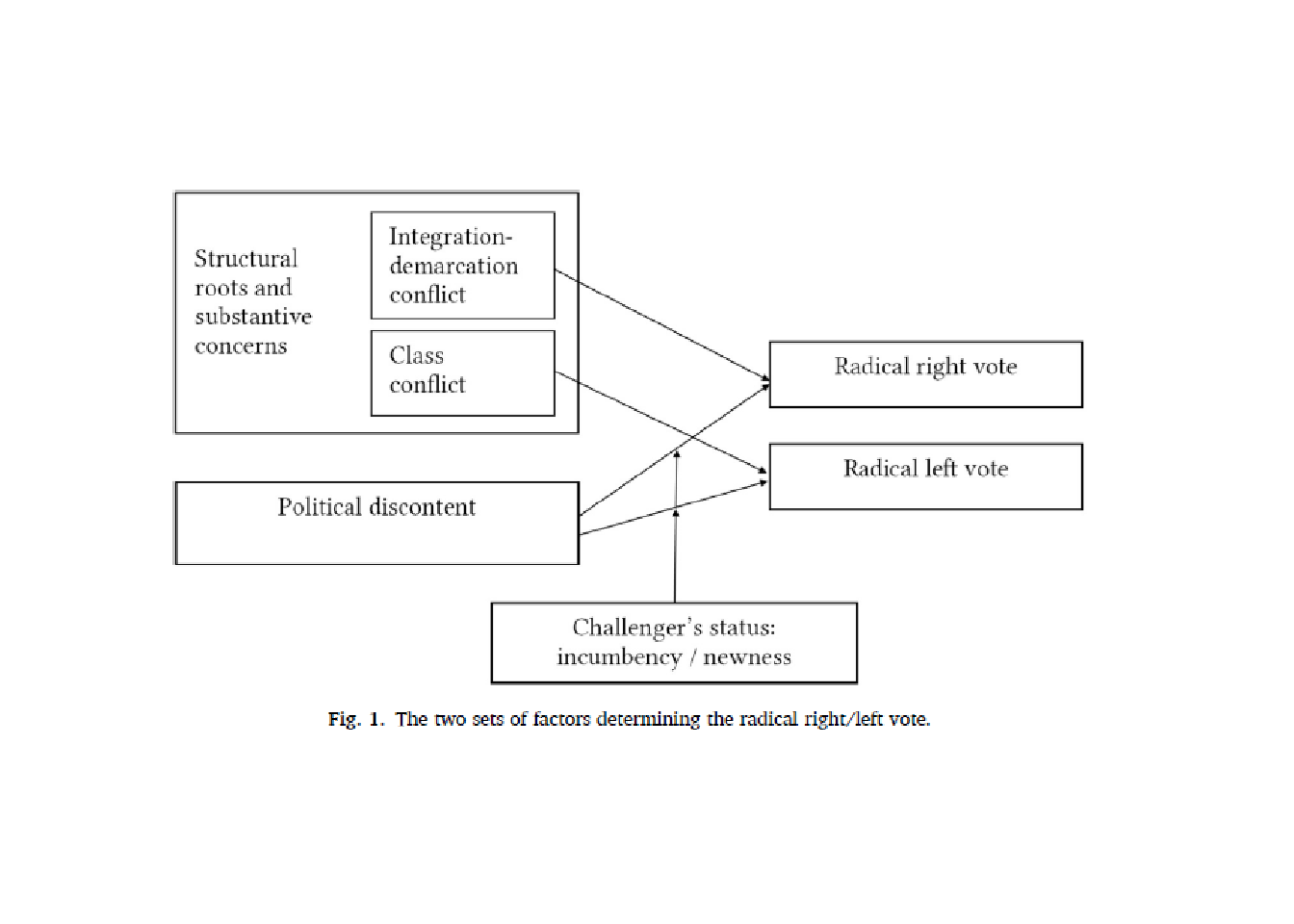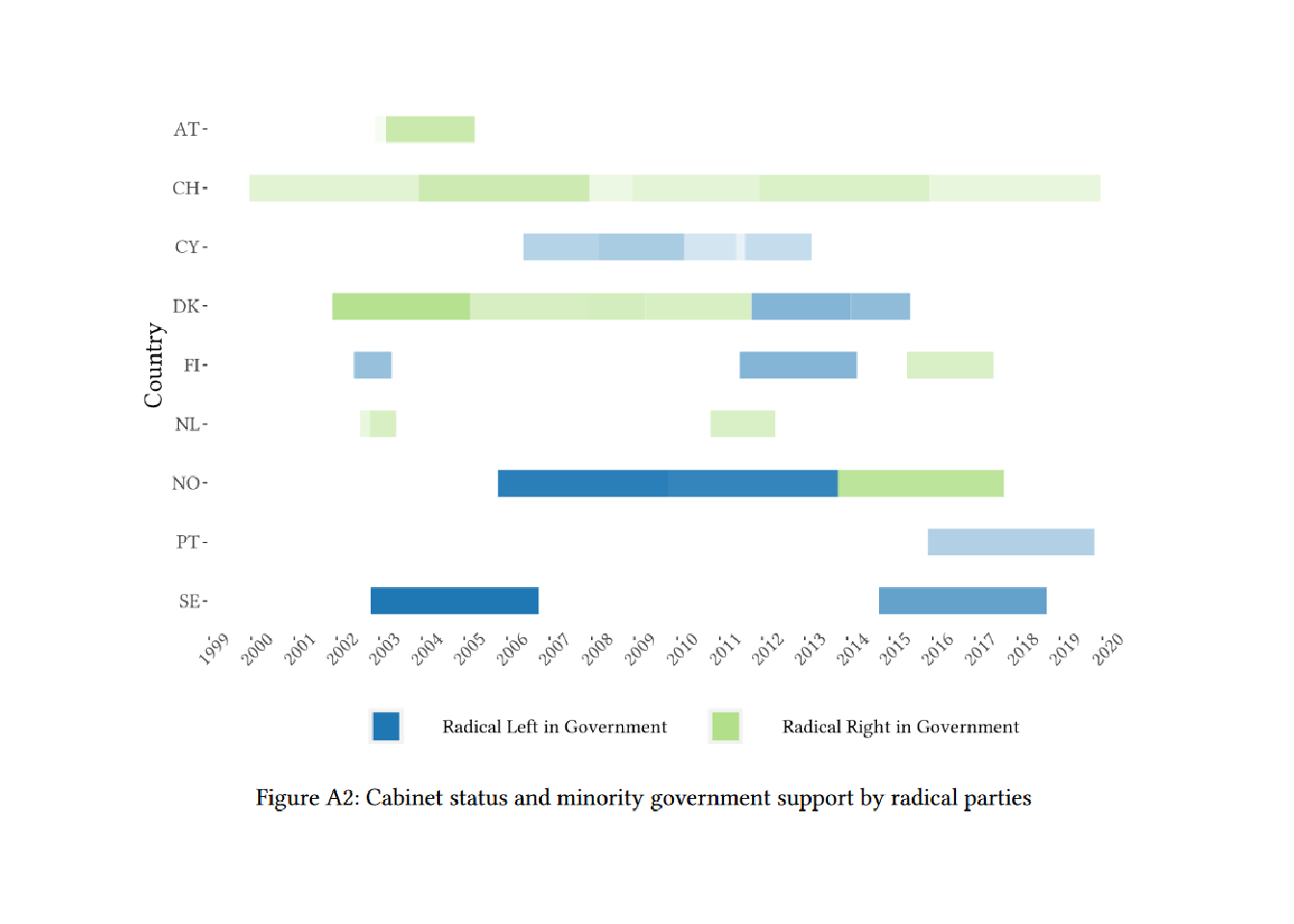The article “Support for radical parties in Western Europe: Structural conflicts and political dynamics”, co-authored with Hanspeter Kriesi (European University Institute), has just been published in Electoral Studies.
Open-access pre-print version is available here.
While populist radical right and populist radical left parties mobilize two distinct sets of substantive grievances, both benefit also from voters’ political discontent. In our article, we examine under which conditions voters’ political grievances and populist sentiments drive the success of radical parties.

We argue that to understand the rise of radical challengers across Western Europe, we need to combine an analysis of structural determinants related to social change with a study of the political determinants derived from opportunity structures for radical parties in government and opposition.
We rely on data from the European Social Survey (ESS) from 17 Western European countries (2002-2016) linked to information about the political context during the time when respondents were interviewed. This allows us to exploit variation in government participation of radical parties across and within ESS waves.

The results show that voters’ substantive grievances determine a vote for radical challengers in an independent and stable manner, while voters’ political discontent only works to heighten their success when these parties are in opposition. By drawing attention to the political dynamics which act to moderate the impact of political discontent, our findings help to understand the long-term electoral prospects of radical challengers from the left and the right.

While Hanspeter Kriesi and me relied on two different statistical software packages (R and STATA) to conduct the empirical analyses, we managed to successfully integrate our scripts in a single and fully reproducible RMarkdown script, which can be found at the Harvard Dataverse along with the replication data.